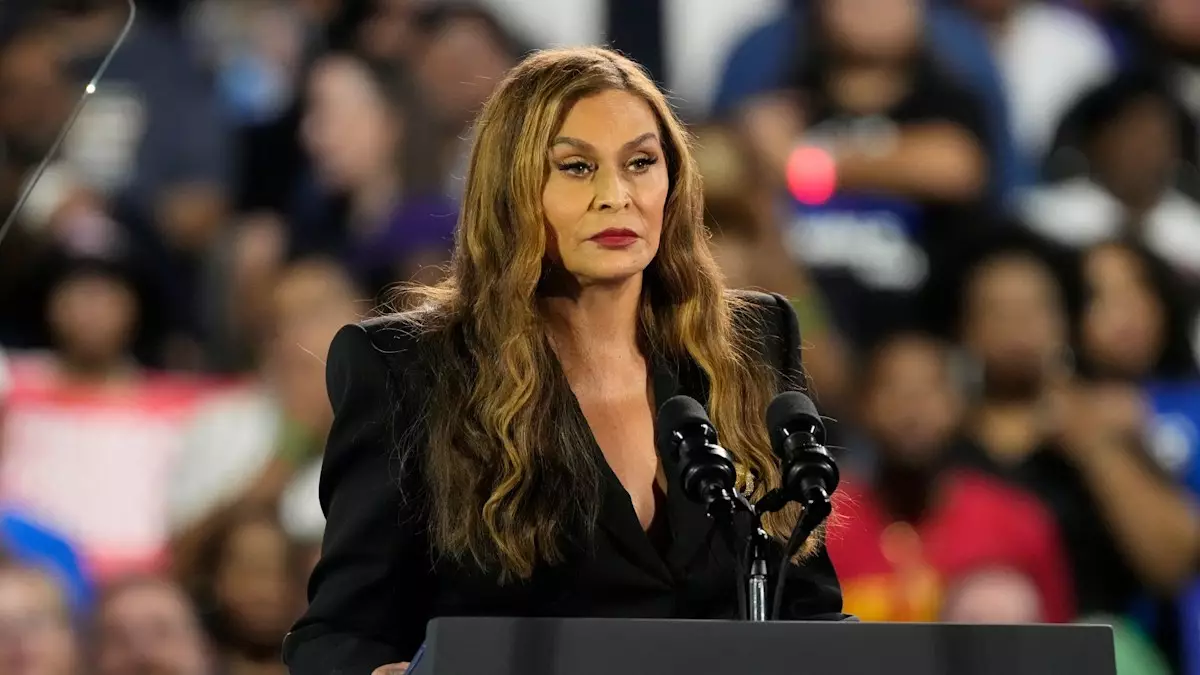Tina Knowles, often celebrated for her elegance and her role as the matriarch of one of the most powerful music families in history, Beyoncé’s family, embodies much more than just a public persona. Her life, depicted in her poignant memoir *Matriarch*, exposes the hidden world of pain, injustice, and profound resilience. At the age of 71, Tina opens the doors of her past, allowing readers to glimpse a traumatic chapter that has lingered within her family for over fifty years: the vicious police beating of her older brother, Lumis “Skip” Joseph Beyoncé, in 1967.
In *Matriarch*, Tina doesn’t shy away from recounting an event that radically altered the course of her family’s life. The chilling narrative begins with a single night lit by the glow of a streetlamp in Texas, but shadowed by fear and misunderstanding. Skip, returning home after a date, was mistakenly dropped off at what turned out to be the wrong address. Desperate to find safety, he stood outside a neighbor’s home, but instead of kindness, the specter of authority emerged. A call to the police turned an innocent situation into an abominable nightmare as the officers arrived, citing a “stranger” at the door as justification for their heavy-handed approach.
A Family Torn Apart
Tina’s graphic depiction of her mother’s terror while pleading for her son’s life serves as an emotional core of this narrative. The sheer desperation in her mother’s repeated entreaty—“Please don’t let them kill my son”—highlights the vulnerability that people of color often experience in the face of law enforcement. It reveals a universal truth, allowing readers to connect with the fear that can engulf parents when their children’s lives are threatened. This deeply personal account underscores a painful irony: that an innocent family situation could lead to police brutality—all because of a mistaken identity.
Skip’s cruel treatment at the hands of law enforcement, which left him “drenched in blood” when his family finally found him, speaks volumes about the systemic issues woven into the fabric of society. The horror of his encounter marked a painful turning point for Tina and her family, leaving not just physical scars but psychological ones that would ripple through generations. The trauma instilled a paralyzing fear in her parents, morphing normalcy into a relentless state of vigilance and anxiety, where safety became an illusion rather than a guarantee.
The Shadows of Injustice
What is particularly striking about Tina’s narrative is her candid acknowledgment of how terror became a common lens through which her family viewed the world. It wasn’t merely the aftershocks of that fateful night that haunted her family’s interactions with police; it was an ongoing saga of harassment, a cruel reminder of their vulnerabilities. The haunting reality of constant scrutiny changed Tina’s worldview, showing how deeply ingrained systemic injustice could seep into the fabric of everyday life.
In a shocking turn, Tina also recounts her own experience with the law, a revelation that adds yet another layer of complexity to her story. Being stopped by an officer involved in Skip’s arrest demonstrated how cyclical and pervasive the issues of inequality and fear can be. This personal account represents not just her family’s struggle, but a broader commentary on the often overlooked consequences of systemic brutality.
Courage in Adversity
Amid such pervasive fear and anxiety, it is inspiring to see Tina channel her anguish into activism. By participating in civil rights demonstrations, she chose the path of courage over silence, embodying the strength that can emerge from despair. Although her parents may have instilled a practical perspective focused on stability—”Get you a good government job”—it was their support that ultimately provided the foundation for her resilience. Their overarching message emphasized the undeniable strength of family, reinforcing the idea that love can be a powerful catalyst for change.
Tina Knowles’s journey through trauma, injustice, and empowerment serves as a vital reminder of the intersection between personal histories and broader societal issues. Her memoir not only reveals the truths of her own life but also offers insight into the experiences of countless families shaped by similar injustices. It is a heartfelt testament to resilience, courage, and the unyielding bonds of family that persist in the face of adversity, giving readers a powerful message that transcends time and circumstance.

